Antonio Anna Mele
Noise can be helpful for variational quantum algorithms
Oct 13, 2022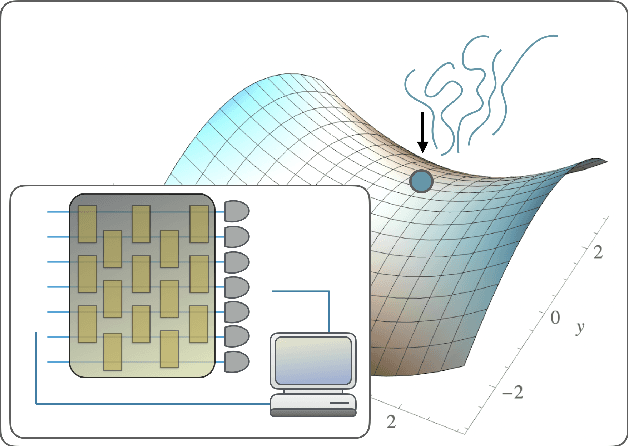
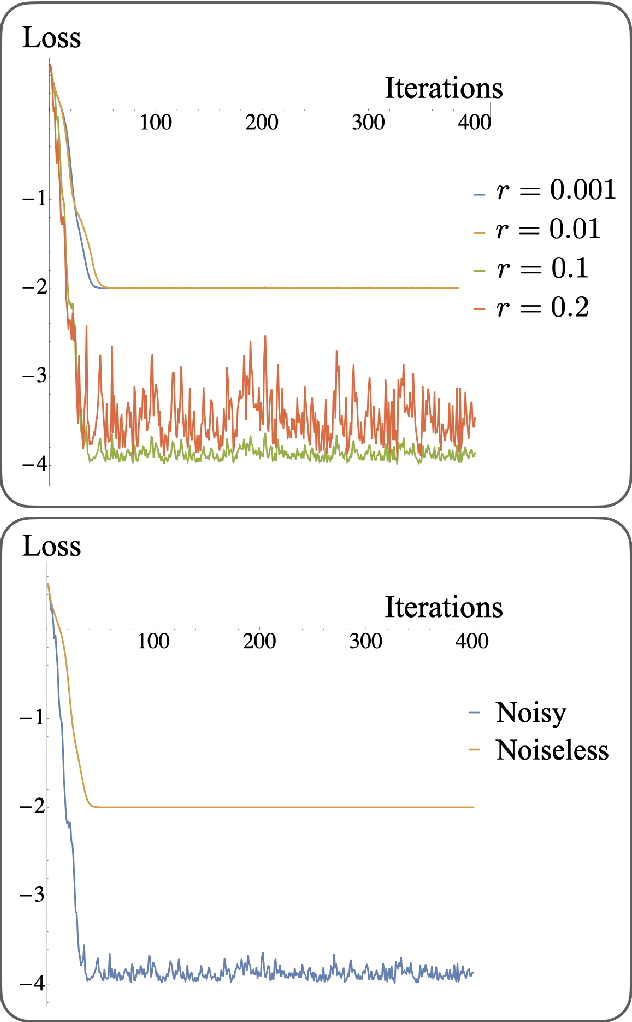
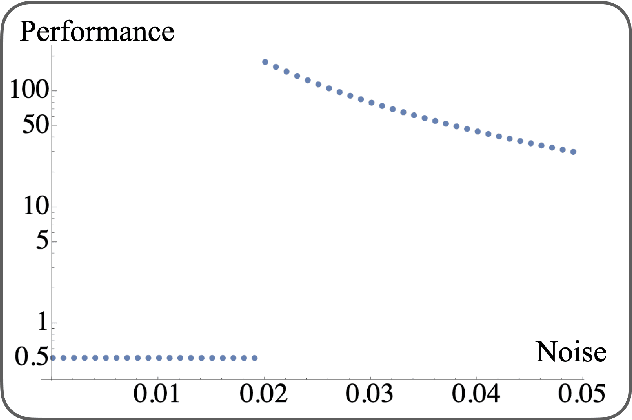
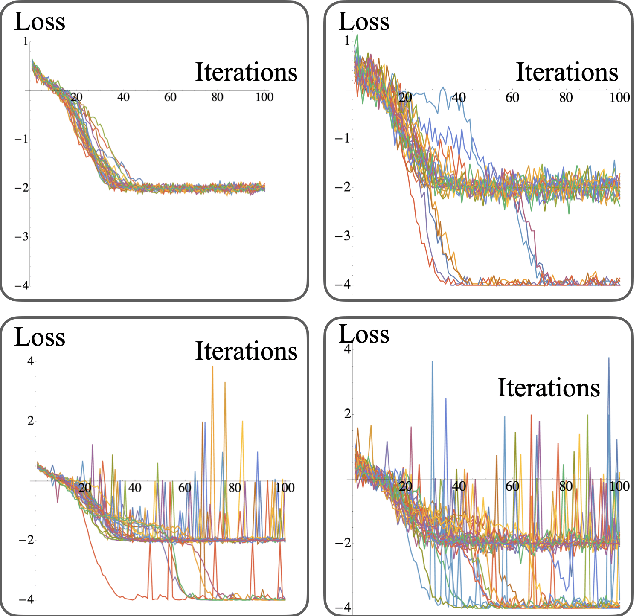
Abstract:Saddle points constitute a crucial challenge for first-order gradient descent algorithms. In notions of classical machine learning, they are avoided for example by means of stochastic gradient descent methods. In this work, we provide evidence that the saddle points problem can be naturally avoided in variational quantum algorithms by exploiting the presence of stochasticity. We prove convergence guarantees of the approach and its practical functioning at hand of examples. We argue that the natural stochasticity of variational algorithms can be beneficial for avoiding strict saddle points, i.e., those saddle points with at least one negative Hessian eigenvalue. This insight that some noise levels could help in this perspective is expected to add a new perspective to notions of near-term variational quantum algorithms.
Exploiting symmetry in variational quantum machine learning
May 12, 2022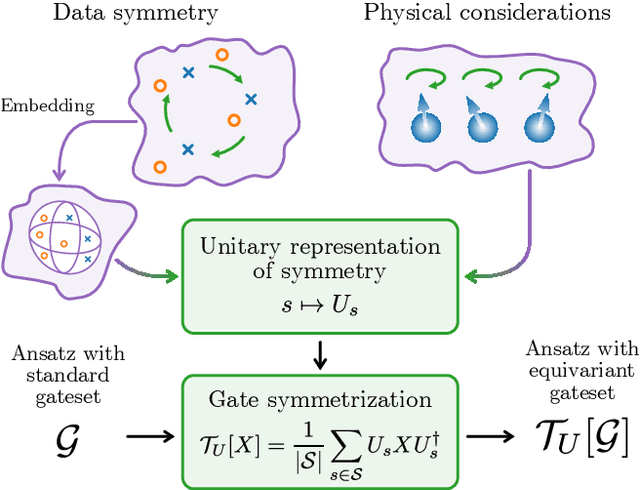
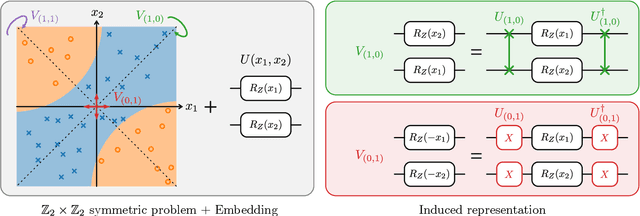
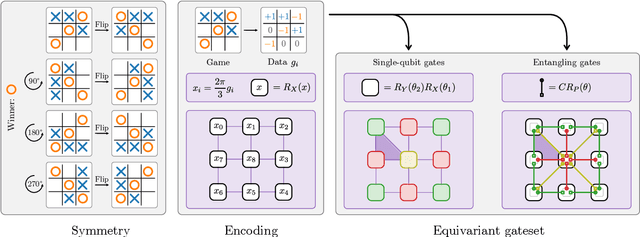
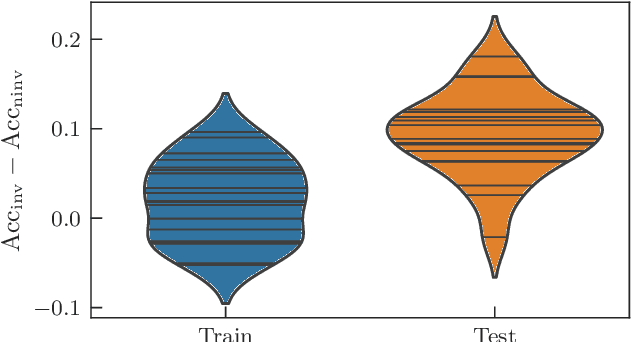
Abstract:Variational quantum machine learning is an extensively studied application of near-term quantum computers. The success of variational quantum learning models crucially depends on finding a suitable parametrization of the model that encodes an inductive bias relevant to the learning task. However, precious little is known about guiding principles for the construction of suitable parametrizations. In this work, we holistically explore when and how symmetries of the learning problem can be exploited to construct quantum learning models with outcomes invariant under the symmetry of the learning task. Building on tools from representation theory, we show how a standard gateset can be transformed into an equivariant gateset that respects the symmetries of the problem at hand through a process of gate symmetrization. We benchmark the proposed methods on two toy problems that feature a non-trivial symmetry and observe a substantial increase in generalization performance. As our tools can also be applied in a straightforward way to other variational problems with symmetric structure, we show how equivariant gatesets can be used in variational quantum eigensolvers.
 Add to Chrome
Add to Chrome Add to Firefox
Add to Firefox Add to Edge
Add to Edge